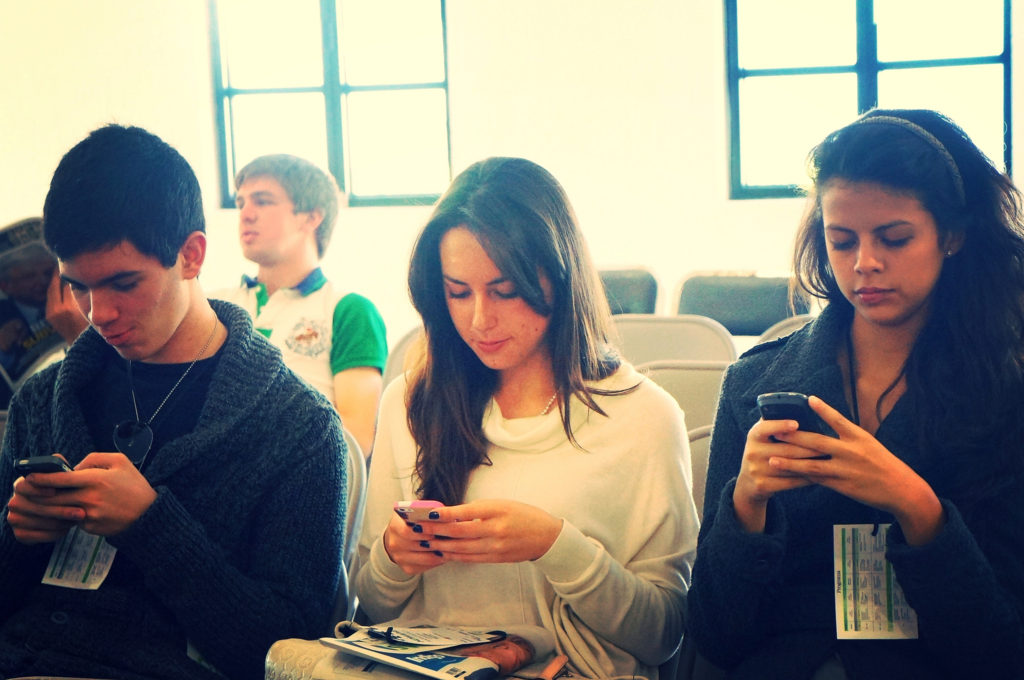As election security becomes a major issue for the U.S. intelligence community following attempts by Russia to hack into American infrastructure, one state is leaving traditional methods behind and is now allowing citizens to vote absentee with their smartphones. For the first time in U.S. history, voters in 24 counties in West Virginia will be able to vote via mobile application, with some saying the measure will increase voter participation for members of the military deployed overseas.
While the new mode of participating in the democratic process is very innovative, security experts and some government officials are warning of possible security breaches. Director of National Intelligence Dan Coats warned recently that “the warning lights are blinking red” with respect to Russian interference in U.S. elections this year, less than four weeks from Election Day.
Nevertheless, West Virginia has decided to ignored those warnings, launching with a seldom-tested mobile voting technology. The state has partnered with Boston-based Voatz, Inc., an online election administrator that conducts government, corporate, academic, local, and private elections, according to the company’s website.
To secure the electronic ballots, the company utilizes the “immutability of the blockchain” technology which is the basis of cryptocurrency transactions.
“Because blockchain is a distributed ledger of transactions, military mobile votes become immutable and tamper-proof once recorded,” said a spokesperson from Voatz in a report from PJ Media.
A trial run was undertaken in six counties in West Virginia’s primary election in May.
A news release from the West Virginia Secretary of State’s office explains, “Post-election security audits by several independent and widely respected technology auditing companies showed that the technology provided a secure platform for voting and an alternative to the traditional absentee paper ballot.”
“Voatz’s app, which also utilizes biometric facial recognition software and thumbprint safeguards to ensure the identity of the voter, increased the confidence of the auditors. In short, the nation’s first mobile voting app test pilot was a success,” state officials added.
To work the mobile voting app, users must register with Voatz, including submitting a standard photo ID and a selfie video of the user’s face. The company then matches the submission with facial recognition software that they say can verify the voter’s identity.
Although the state admits that there are “substantial” security concerns, West Virginia officials say that Voatz adheres to “federal standards for software development, regular maintenance and security upgrades, in-depth penetration testing, source code auditing and audits of the system’s cloud infrastructure,” according to the report. If all goes well November 6, it could lead to bolstering election infrastructure elsewhere.
Nonetheless, there are still multiple facets of mobile voting security that some say are disconcerting.
A September report from Spiegel Online states, “Ultimately, no one can say with certainty whether Voatz’s app is secure,” with the author claiming there is “very little proof that it is invulnerable.”
Marian Schneider, president of Verified Voting, a national organization focused on safeguarding election infrastructure, said that she has reservations about using a mobile-based voting application.
“Even putting aside the authentication and verifiability issues, nothing in these systems prevents malware on smartphones, interception in transit or hacking at the recipient server end,” she said. Additionally, Schneider believes it would be fairly easy to tamper with the identity authentication process.
“The 2016 election proved that our election system is vulnerable,” she added.
A majority the election security advocates do not yet support mobile platforms on Election Day, preferring rather to reinforce security in a low-tech way with paper ballots and post-election ballot audits.
In a potentially extreme case regarding mobile voting, a targeted interruption of Internet connectivity in voting precincts could be enough to influence an election.
Although blockchain technology provides the ability to encrypt data, the fact that this would be the first time it is ever used to ensure security in a U.S. election still makes it a daunting task. In regards to government activity, blockchain is still in its infancy. Just this year, a member of the Virginia House of Delegates introduced a bill to conduct a study on blockchain technology in state record keeping that may leave to the eventual implementation of cryptographic transaction data.
Even so, if federal standards end up taking the blame for lackluster election safeguards, it could be worthwhile in testing the waters of what the private sector as to offer.

